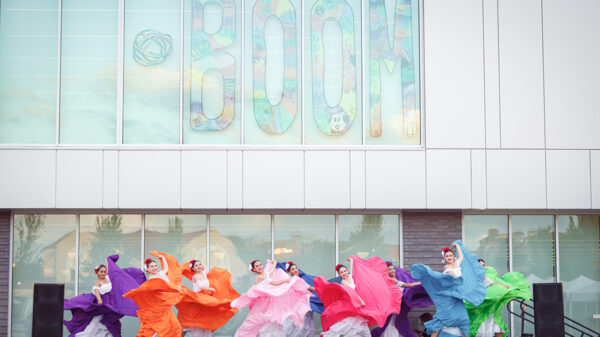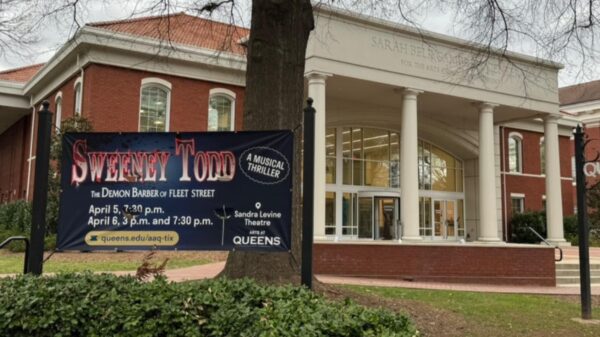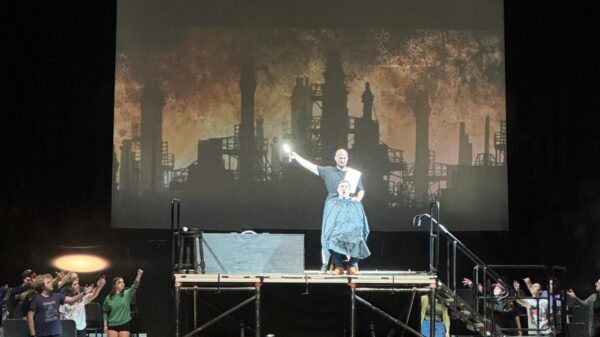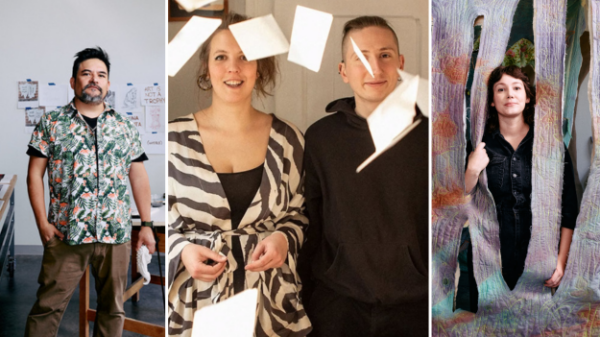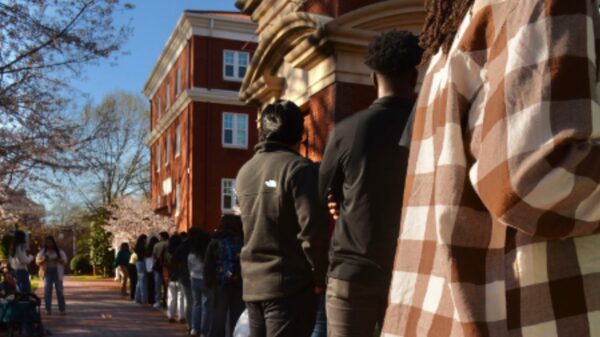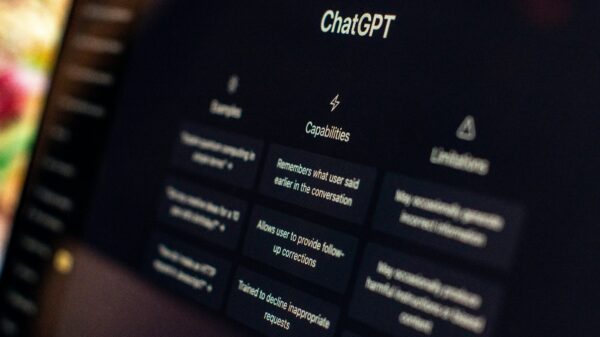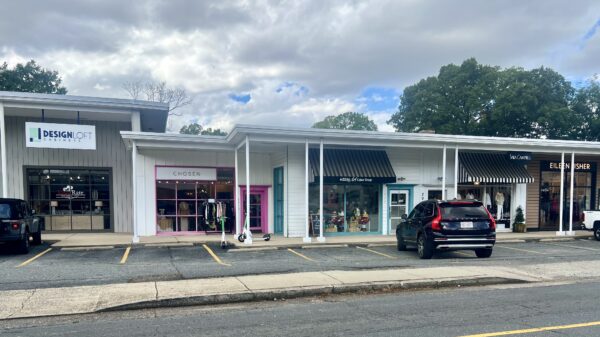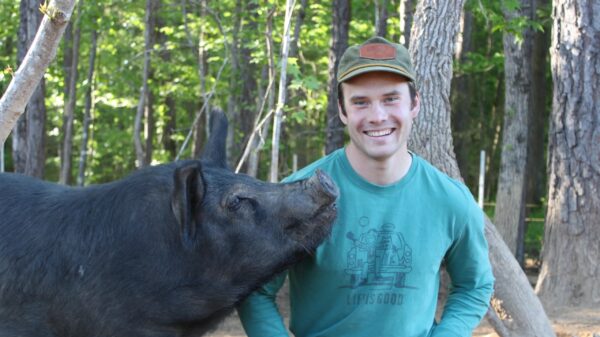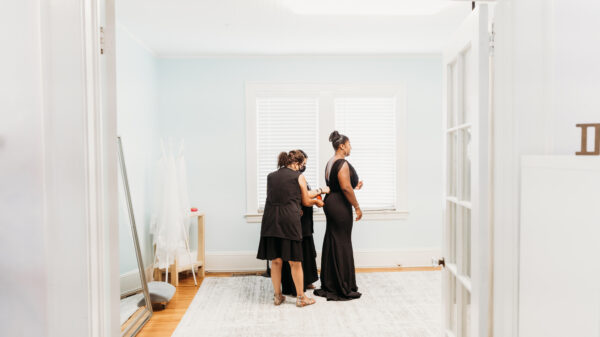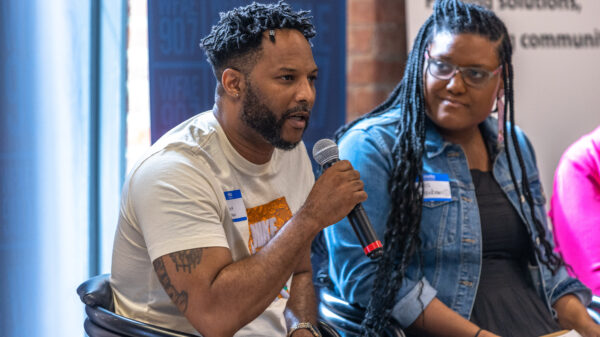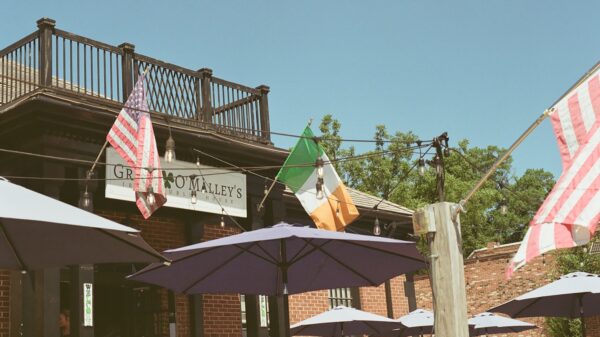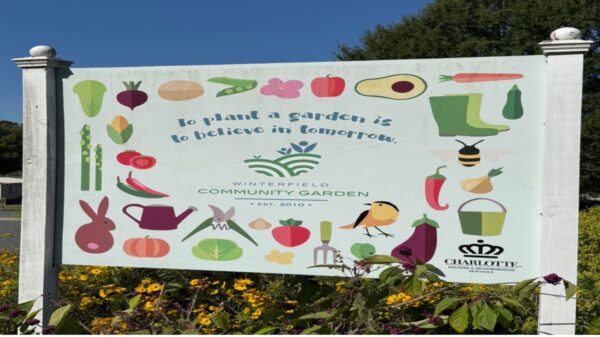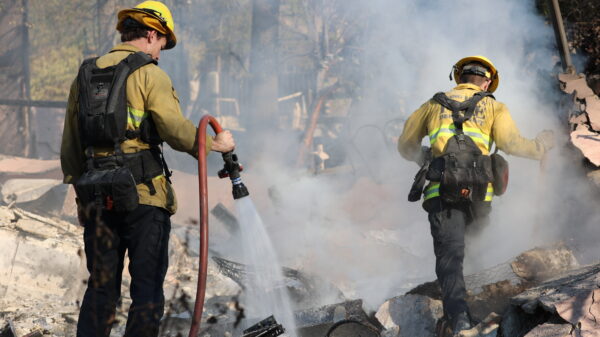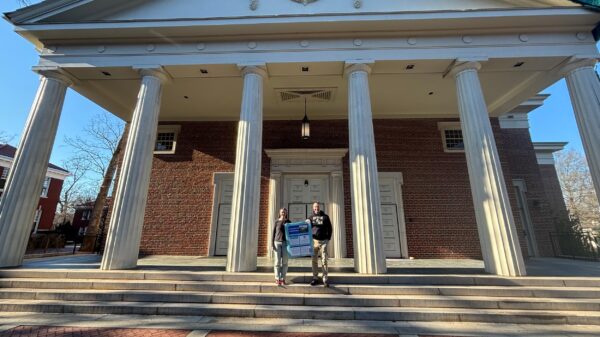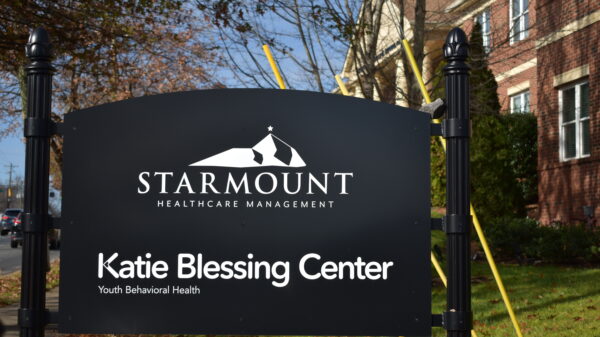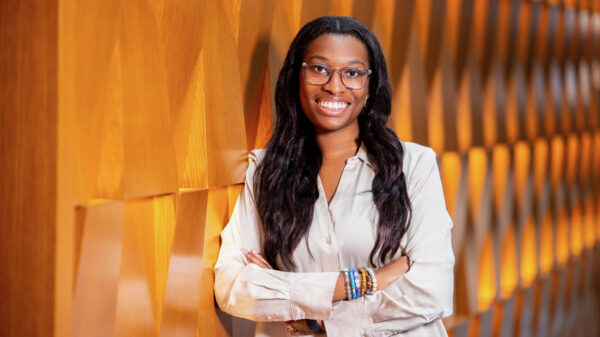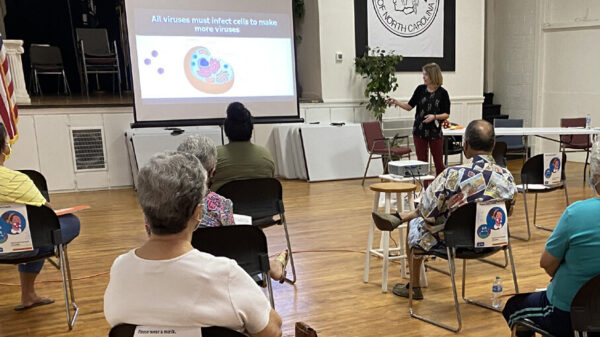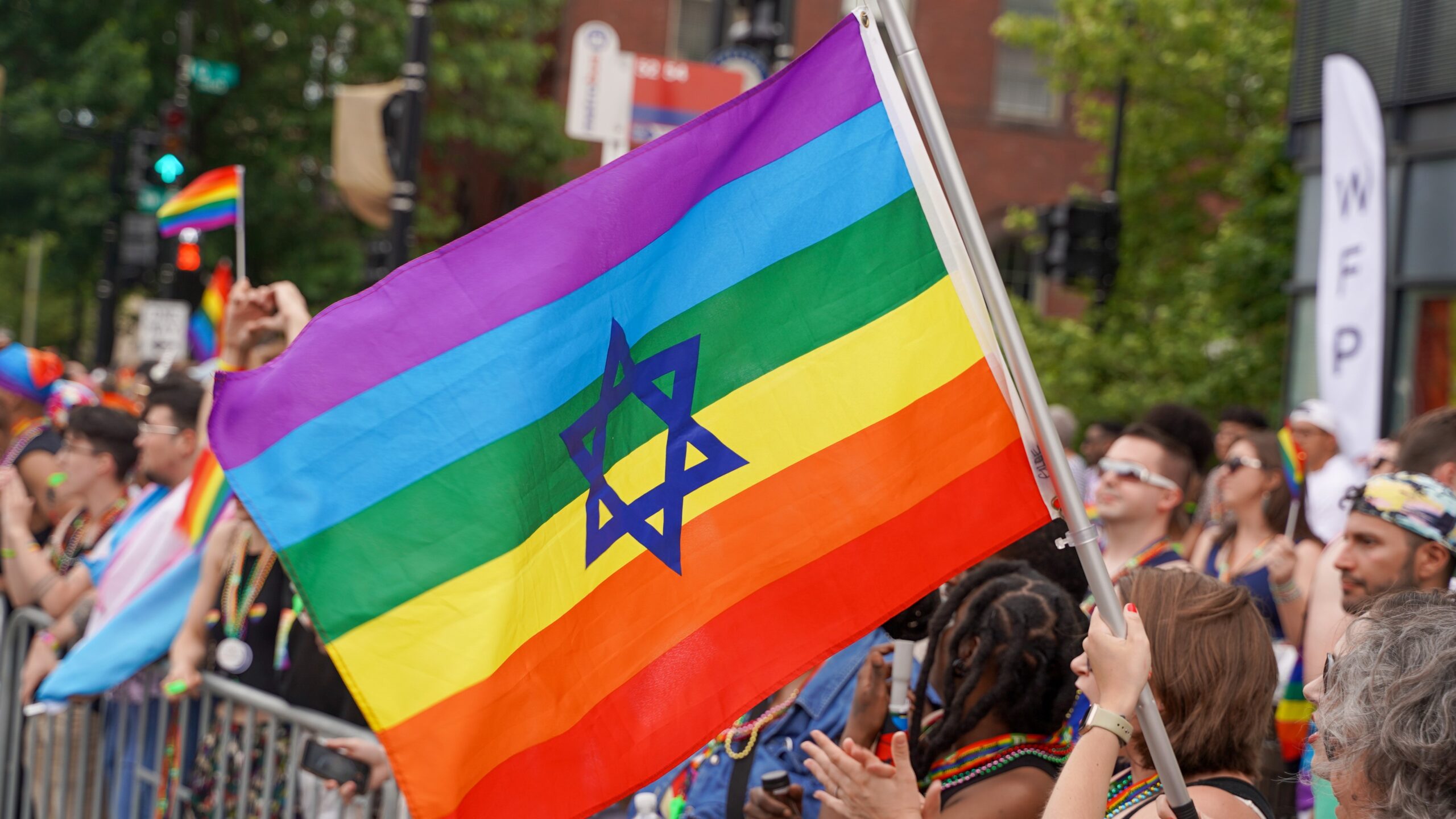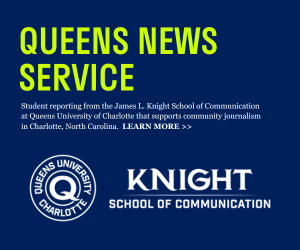Rabbi Charlie Cytron-Walker made headlines one year ago – on Jan. 15, 2022 – for his life-saving decision to throw a chair at the gunman holding him and three others hostage at Congregation Beth Israel in Colleyville, Texas.
Cytron-Walker moved to Winston-Salem in July 2022 to become rabbi of Temple Emanuel, and continues to combat hatred as antisemitism rises in the United States. He was recently appointed special advisor for security by the Anti-Defamation League, and advises the Jewish community in North Carolina – and faith groups everywhere – to be aware of threats and have a plan in place should they occur.
Cytron-Walker recently compared taking security workshops to CPR training. It’s important to know what to do when danger strikes.
“We don’t take CPR training because we’re waiting for someone to have a heart attack in front of us or expecting them to,” Cytron-Walker said. “We take it to be prepared, so that in case something bad happens, we know what to do in that kind of situation.”
On Jan. 26, the Stan Greenspon Holocaust and Social Justice Education Center at Queens University of Charlotte is recognizing Cytron-Walker as the first recipient of the Upstander Award. He’ll be participating in an event in observance of International Holocaust Remembrance Day.
The Importance of Local Relationships
In the Dallas-Fort Worth area – where Colleyville is located – Cytron-Walker belonged to a small community and congregation. But he had about a dozen rabbis nearby. In Winston-Salem, Temple Emanuel is the only mainstream congregation in the entire city.
Cytron-Walker advises the Charlotte and North Carolina community to focus not on division, but on building relationships. “I think empathy is at the core,” he said. “On some level, hate is an absence of empathy.”

Education is an important component of reducing hate and increasing understanding, he said, and many people have misconceptions about the Jewish community simply because they have never had any experiences or interactions.
“When we have an opportunity to welcome people that haven’t had a lot of exposure, those are important conversations. I’ve met so many people who have found an interaction with a Jewish person taught them so much that dispelled stereotypes.”
Fighting Antisemitism
Cytron-Walker’s perspective on antisemitism is based on violent, firsthand experience. At the same time, he understands that you can’t fight hate with more hate.
“If we’re going to get to the root of hate, hate is a powerful emotion. And some people have been hating for so long that it’s not something that’s easily overturned,” he said. “We have to be willing to come back to the table, to rebuild chairs, because there’s too much hate that exists.”
Safety and security in the Jewish community remains among his most urgent concerns. The rise in American antisemitism is indisputable. In 2021, according to the Anti-Defamation League, antisemitic incidents were documented in all 50 states. The organization reported a 61% increase in attacks against Jewish synagogues and Jewish community centers.
Contributing factors in the United States include politicians flirting openly with Holocaust deniers, the repetition of centuries-old conspiracy theories, and recent, widespread public remarks by celebrities.
Cytron-Walker said people are influenced by what they see in the media, which can lead to antisemitic views. “Those are the people that maybe don’t know anything, but because someone they respect or look up to is sharing hate, they think it’s okay. And we have to be able to call it out,” he said.
Cytron-Walker is encouraged to see so many people from all different backgrounds across the U.S., especially non-Jews, call out hate. He saw this demonstrated most clearly with the outpouring of support after the events in Colleyville.
“We all need that love and support,” he said. “We need it before something bad happens, but especially when something bad happens. When hate is met with silence and indifference, it grows. Period.”
The Upstander Award
Cytron-Walker was selected as the first recipient of the Upstander Award because of his courage and leadership, said Rabbi Judy Schindler, director of the Greenspon Center. “He not only stood up in the face of hate on that terrifying day in Colleyville, saving his own life and the lives of his congregants, but he has worked tirelessly to combat anti-semitism and hate, and increase safety and security ever since,” she said.
The keynote speaker at the Jan. 26 event at Queens will be Stephen Smith, executive director emeritus of the Shoah Foundation Institute at the University of Southern California. The institute was founded by director Steven Spielberg in the wake of the filming of “Schindler’s List.”

